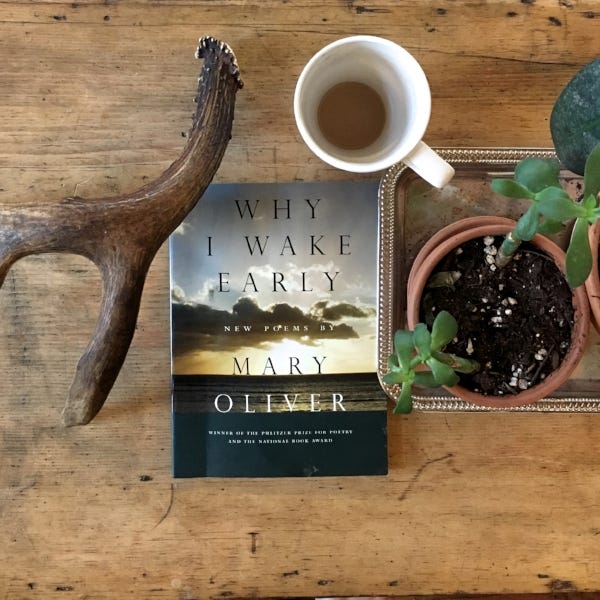The epiphany of small things

Beginning, Middle, End
I was that student in high school who always wrote my outline after I’d written my essay. I would ramble out what I wanted to say and then deconstruct it into a neat outline, and my teachers would be none the wiser.
I usually got an A.
This did me no favors.
It wasn’t until I started using The Lost Tools of Writing with my own kids that I learned how to, and saw the point of, writing an outline first. I should say, writing an outline before the essay, because in Lost Tools you learn to brainstorm and ask good questions to come up with something to say before you ever write a roman numeral for an outline.
I may not have a fancy college degree, but thanks to homeschooling I’m on my fourth trip through high school and I’m finally starting to grasp the things they tried to teach me years ago.
Having an outline to work with tells me where I’m going, what I’m supposed to focus on at each point, and when I’m done.
My day needs an outline.
A simple, workable outline for my day would be: beginning, middle, end. I like to keep things bare-bones to start with and fill-in as I go, and these three sections of my day give me check-points to manage.
Beginning
The beginning is before the sunrise, for me. I like a long morning, a slow start, time to think. I don’t always get up early enough for this, but when we talk about schedules and routines, we all should know we’re talking about ideals. An ideal day starts before the sun.


After a slow start, I try to do those things that require the highest levels of concentration for me. I pay the bills, balance the accounts, study and prep for tutoring, and anything else that requires reading or mental effort. I try to get all this done before noon, but again—ideals. I get sidetracked by rabbit holes or laundry or someone else that needs my help.
I go through cycles of deciding that morning is the best time for me to exercise, and morning is the worst time for me to exercise. I don’t beat myself up about these inconsistencies, as long as I’m getting the exercise in. I would like to be so grounded in routine that nothing could shake me, but I also find freedom in flexibility. If I’m having a particularly good morning at home (meaning I’m getting stuff done and enjoying the people in my house) I’ll put off exercise until the afternoon. If the opposite is true, I’ll find a good podcast or audiobook and go for a run.
The bottom line: I’m constantly adjusting my morning routine according to my sleep, my health, my family, and the needs of each particular day. It’s a luxury not everyone has, so I try not to complain when things don’t go as planned.
Middle
The hours from noon until it’s time to start dinner often feel dead to me. I am probably a little stressed that my morning is over and I didn’t get “enough” done. The kids are finishing up school and chores and doing their own things. My list usually has something left on it that I have procrastinated. And if we have something going on that evening, these are the hours that I’ll start to anticipate leaving the house.
Because I can feel unmoored in the afternoons, I try to save mindless tasks for this time so that I can still feel a sense of accomplish and purpose, without demanding too much thought. I’ll fold a couple loads of laundry while I listen to an audiobook. I’ll make phone calls while I clean the house, coupling two dreaded tasks together. I’ll take thirty minutes to “retreat” into a book or project that is just for me and then “return” to the household stuff.
The middle of the day is time for me to refocus and reset.
End
The end of the day used to be a marathon to the finish line: get the kids fed, get them bathed, get them ready for bed, get them to sleep. It’s been a long time since we lived that life, and each evening looks so different now. Many nights, there is at least one person who’s not even home until I’m in bed.
The evenings are almost like a mini-weekend to me. We eat together (whoever is around), I clean up, and we may watch Netflix or play a game or read. Some nights we have meetings or games and some nights we have extra people at the dinner table. Some nights I’m so brain-fried that I’m thinking of bed at 8 o’clock.
Everyday is different, but writing all this out makes my days seem small and predictable, humble, and I’m not sure how I feel about that.
Here’s what I do know: I’m humbled by slower, thoughtful work.
But right now (literally. right now.) I’m realizing that thoughtfulness is exactly what I would want if someone else were planning my days—an employer or task master or coach. I’d want them to give me a simple outline with room to think, and I’d want them to think about the best way to manage me as a resource. I guess this is what I’m trying to do with myself.
So I’ll go slowly about my humble work while the world screams at me to be productive.
I'll probably have my headphones in, listening to an audiobook, not listening to the world.
Thank you for trusting me with your inbox. As always, hit "reply" to this email and share your thoughts with me. I love hearing from you!
Tresta

Recent Articles:
The Great Story of Parenting
Going Through Changes
Something New
Beginning Again
A Quiet Christmas
